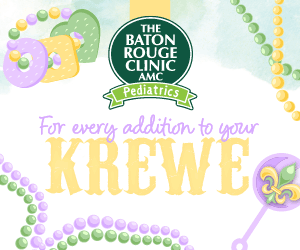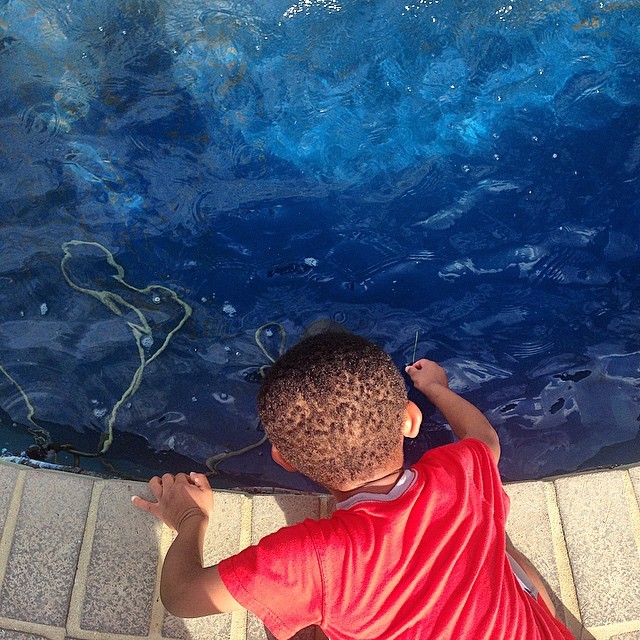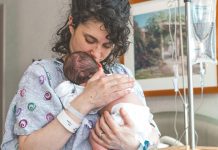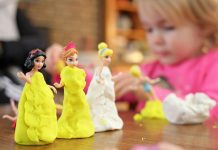If stories of adoption and fostering in Baton Rouge are of interest, there are several great pieces on the website including stories of adoption (here and here), advice on what not to ask an adoptee, and a real life glimpse about what it is like to foster children in Louisiana. If transracial adoption is of specific interest, I’d urge you to read the book “In Their Own Voices” by Rita Simon and Rhonda Roorda.
Transracial Adoption in the Deep South
Buckle your seat belts everybody because I’m about to share about a part of my life that still has some controversy surrounding it: transracial adoption. And I’m going to be as open and as real as I know how to be. But let me assure you: I’m not talking about this to stir up a lot of emotions or controversy; I hope that by sharing a little about the things we’ve experienced as a family that we can all continue to dialogue about the complexities of race and parenting and offer each other a lot more grace and acceptance as we each navigate the journey we are on.
When my husband and I decided to become foster parents, we didn’t purposely set out to become a transracial family; it just sort of happened. I was in graduate school at the time getting my master’s degree in sociology, well aware of the complexities of race and inequality, educated on the nuances of transracial parenting, and as a result felt at least somewhat equipped to parent a child of any racial background. So when the question came up during our foster parent certification process about what children we’d be willing to accept as placements (age, race, sex, etc.), we said we’d be open to fostering a child of any race without any hesitation. Easy as that. What I didn’t appreciate at that time was that not everyone in the universe shared my views on race and transracial adoption.
We get a number of questions when we are out as a family, some out of curiosity and some that come with a little punch behind them. Questions like, “Is he yours?” or “How long has he been with you?” Yes, he is ours and he has been with us since he was only a few days old. Questions like this don’t bother me in the slightest; people are generally just innocently curious and we are happy to talk openly about adoption with them. But there are other questions that are more startling: “How can white people love a black child?”. Yes, this is a real question somebody asked us. We love him completely, entirely, and unconditionally, the same way we would love any child that we had the privilege of parenting. He is my everything. And I’ll never forget an experience we had in Lafayette when a woman saw us out in public and said loudly to her friend, “White people shouldn’t be raising a black child.”
I get it…people have opinions, some of them very strong opinions, about transracial adoption and that’s okay. But I think we should aim to have those conversations in a constructive way and away from kids’ little ears. I never mind engaging in a respectful dialogue about race or transracial adoption – even if we will never see eye to eye – but yelling things at a stranger across a parking lot is not a way to engage in a constructive conversation. Clinging to ignorance is not a way to engage in a constructive conversation. We all (myself included) have to come to the table with open minds, with an understanding of the things we cannot change, a willingness to really hear the other side, and with the goal of finding common ground and ways we can move forward together. Those are the conversations I want to be having- conversations that I can grow from and conversations that can keep our community growing.
And let me assure you, the complexity of raising a child of a different race – especially a black son in the south – is not lost on us. We are very engaged with this part of our journey and are doing everything in our power to educate ourselves and prepare for the lifelong road ahead for all three of us. Our lives are a reflection of this complexity; it is a factor in every decision I make. Will I always get it right? Probably not. But then again, what parent really does?


















Thank you for this post!! My husband and I have two biological children, but adoption is VERY much something we pray about and discuss regularly. Like you, we feel open to exploring ANY adoption. I look forward to reading In Their Own Voices as a part of our prayer process in this future journey!
Thanks for your comment, Janee. I really loved In Their Own Voices. It was sometimes tough to read, but they were words I needed to hear. Best of luck on your journey!
Thank you for recommending In Their Own Voices to your Blog readers!
I am happy to inform you that coming this November is the fourth installment of the In Their Voices series call In Their Voices: Black Americans on Transracial Adoption. (See the link below.) I am confident that your readers will also like this book and will be ready to read it! Please also in the below links check out the Simon-Roorda books on Transracial Adoption.
http://cup.columbia.edu/book/in-their-voices/9780231172219
http://www.amazon.com/Rhonda-M.-Roorda/e/B007WUP77W
I wish everyone the very best in their adoption journeys!
Rhonda
Hi, I love your post! I am Korean and was adopted as an infant by white parents, who actually became pregnant with twins right after adopting me. I grew up in Mandeville and have never met anyone even close to relating to my experience (which was a wonderful one). Would this be a good book for me to read or do you know of any for Asians? Thank you!
Hey Katie- thanks for reading! In Their Own Voices might be helpful in the sense that some of the adoptees share their experiences about growing up in families that didn’t look like them, but it has a lot of content that is specifically about being a black person raised by white parents. There are a couple of resources regarding Asian transracial adoption that come to mind- the first is a documentary called Somewhere Between- it follows a few Chinese adoptees (adopted by white parents) and their stories as they figure out how their culture of origin and their upbringing work together. There are 2 books about Korean adoptees that I know about- I haven’t read either but I have heard good things- one is called Reframing Transracial Adoption: Adopted Koreans, White Parents, and the Politics of Kinship and the other is called The “Unknown” Culture Club: Korean Adoptees, Then and Now. I always try to keep in mind that every adoption experience is unique- some people have great experiences and others don’t, which can be hard to hear and navigate. You also might be able to find some facebook groups that would be interesting to you. Hope these ideas are helpful!